Breaking Down the VW Warranty: New Vehicle Limited vs. Powertrain Coverage
Understanding Your VW Warranty: A Foundation of Peace
At its core, a car warranty is a manufacturer's promise to cover the cost of repairing specific defects or malfunctions within a certain period or mileage. It's designed to give you peace of mind, assuring you that if something goes wrong due to a manufacturing fault, you won't be left with a hefty repair bill. For Volkswagen owners, this protection is comprehensive, but it's important to recognize that not all coverage is created equal. Your VW comes with different types of warranties, each with its own scope and duration, tailored to protect various components of your vehicle.
The New Vehicle Limited Warranty: Bumper-to-Bumper Peace of Mind
When you drive a new Volkswagen off the lot, one of the primary protections you receive is the New Vehicle Limited Warranty, often informally referred to as the 'bumper-to-bumper' warranty. This coverage is typically the most extensive, designed to protect nearly all components of your vehicle from defects in material or workmanship. Think of it as a comprehensive shield for most of your car's parts.
What it Covers: This warranty is quite broad. It includes the vast majority of your vehicle's components, from electrical systems and air conditioning to suspension, brakes (excluding wear items), infotainment systems, and more. Essentially, if it's not a maintenance item or a wear-and-tear part, and it fails due to a manufacturing defect, it's likely covered under this warranty. This makes it incredibly valuable for addressing unexpected issues that might arise during the initial years of ownership.
Duration: For most recent VW models, the New Vehicle Limited Warranty typically lasts for 4 years or 50,000 miles, whichever comes first. This duration provides a solid period of confidence for new car owners, covering a significant portion of their initial ownership experience.
What it Doesn't Cover: While extensive, it's not truly 'everything.' Exclusions generally include:
- Routine maintenance items (oil changes, tire rotations, filter replacements).
- Wear-and-tear parts (tires, brake pads, wiper blades, light bulbs).
- Damage caused by accidents, misuse, lack of maintenance, or aftermarket modifications.
- Environmental damage (e.g., hail, flood).
Understanding these exclusions is just as important as knowing what is covered, as it sets realistic expectations for your VW warranty protection.
Diving Deep into Powertrain Coverage: The Heart of Your VW
Distinct from the New Vehicle Limited Warranty, the Powertrain Coverage focuses on the critical components that make your Volkswagen move. This warranty is specifically designed to protect the 'heart' and 'muscle' of your vehicle – the engine, transmission, and drive system. These are some of the most complex and expensive systems to repair, making powertrain coverage an incredibly important aspect of your overall VW warranty.
What it Covers: The powertrain warranty specifically addresses manufacturing defects in:
- Engine: Internal lubricated parts, cylinder block, cylinder heads, oil pan, timing chain, flywheel, and various gaskets and seals.
- Transmission/Transaxle: Internal parts, transmission case, torque converter, and clutch housing.
- Drive System: Front and rear drive axle assemblies, drive shafts, universal joints, and their related components.
Essentially, any component essential for generating and transferring power from the engine to the wheels falls under this umbrella. Issues with these major components can be catastrophic for your vehicle, so having dedicated coverage is a significant advantage.
Duration: While the New Vehicle Limited Warranty offers broad protection, powertrain coverage often runs for a similar duration for recent VW models, typically 4 years or 50,000 miles, whichever comes first. It's important to note that historically, some manufacturers offered separate, longer powertrain warranties. For modern VWs, the two coverages often run concurrently for the initial period. Always consult your specific vehicle's warranty booklet, as terms can vary slightly by model year and region.
Why it's Distinct and Crucial: Even if the durations are the same for new VWs, the specific *focus* of the powertrain warranty is what sets it apart. It ensures that the most fundamental and costly parts of your car are protected. Should your broader bumper-to-bumper coverage expire, understanding that your critical engine and transmission components are still within this specific coverage period can be a huge relief.
Key Differences at a Glance: Bumper vs. Heart
To simplify, here’s a quick comparison of the Volkswagen New Vehicle Limited Warranty and Powertrain Coverage:
- Scope of Coverage: The New Vehicle Limited Warranty is extensive, covering almost everything (except wear and tear and maintenance items). The Powertrain Warranty is highly specific, focusing solely on the engine, transmission, and drive system – the components critical for your vehicle's movement.
- Duration: For recent Volkswagen models, both warranties often run concurrently for 4 years or 50,000 miles, whichever comes first. While their terms might be identical in length, their *breadth* of coverage is what differentiates them. Always verify the exact terms for your specific model year, as warranty structures can evolve.
- Focus: One covers the overall vehicle experience, while the other zeroes in on the most expensive functional parts.
Understanding this distinction is not just academic; it empowers you as an owner. If your infotainment screen malfunctions, you'd look to your New Vehicle Limited Warranty. If your transmission starts slipping, that's a clear powertrain issue. Knowing which warranty applies streamlines the repair process and ensures you're accessing the correct level of protection.
Beyond the Basics: Other VW Warranty Considerations
While the New Vehicle Limited and Powertrain warranties are primary, your Volkswagen also comes with other forms of protection:
- Corrosion Perforation Limited Warranty: This warranty typically covers rust-through on the vehicle's body panels for an extended period, often 7 years or 100,000 miles, whichever comes first. This protects against significant structural rust that penetrates the body.
- Roadside Assistance: Many new VWs come with a period of complimentary roadside assistance, which can be invaluable for flat tires, dead batteries, lockouts, or towing needs.
- High-Voltage Battery Limited Warranty (for EVs/PHEVs): If you own an ID.4 or a plug-in hybrid VW, the high-voltage battery has its own specific warranty, often lasting 8 years or 100,000 miles, reflecting the unique and critical nature of this component.
- Emissions Control System Warranty: Federal and state regulations mandate specific warranties for emissions-related components, which often have longer durations than the standard New Vehicle Limited Warranty.
- Transferability: Good news for future owners! Volkswagen's new vehicle limited warranties are typically transferable to subsequent owners within the warranty period, adding to the vehicle's resale value.
Always consult your official Volkswagen warranty booklet for the most accurate and up-to-date information specific to your vehicle's model year and purchase date.
Maximizing Your VW Warranty Benefits
To ensure you get the most out of your Volkswagen warranty coverage, here are a few key tips:
- Follow Scheduled Maintenance: Adhering to VW's recommended service schedule is crucial. Failure to do so can sometimes void warranty claims for related component failures. Keep detailed records of all maintenance.
- Understand Exclusions: Know what your warranty doesn't cover to avoid surprises. This includes damage from accidents, unauthorized modifications, or using non-approved parts.
- Keep Records: Maintain a file with all your service records, receipts, and the original warranty booklet. This documentation can be invaluable if you ever need to make a warranty claim.
- Address Issues Promptly: If you suspect a problem is covered by your warranty, don't delay. Get it inspected by an authorized Volkswagen dealership as soon as possible.
Being a proactive and informed owner is the best way to leverage the protection your VW warranty offers.
Conclusion
Understanding the nuances of your Volkswagen warranty, particularly the distinction between the New Vehicle Limited Warranty and Powertrain Coverage, is essential for every VW owner. It’s not just about knowing what’s covered; it’s about having peace of mind and being prepared should an issue arise. By familiarizing yourself with these vital protections, you can drive your Volkswagen with confidence, knowing that your investment is well-protected by the commitment of German engineering and comprehensive coverage. Always keep your warranty booklet handy and don't hesitate to consult your local authorized VW dealership for any questions regarding your specific coverage.Where can I find my VIN?

Related Topics
- Off-Roading and Your Warranty: What Every Jeep Owner Needs to Know to Avoid Denied Claims
- Don't Void Your Coverage! 5 Common Mistakes That Cancel Your Hyundai Warranty
- Buying a Pre-Owned Mazda: Understanding the Certified Pre-Owned (CPO) Warranty
- Plug-In Protection: The Specifics of the Mitsubishi Outlander PHEV Battery Warranty

